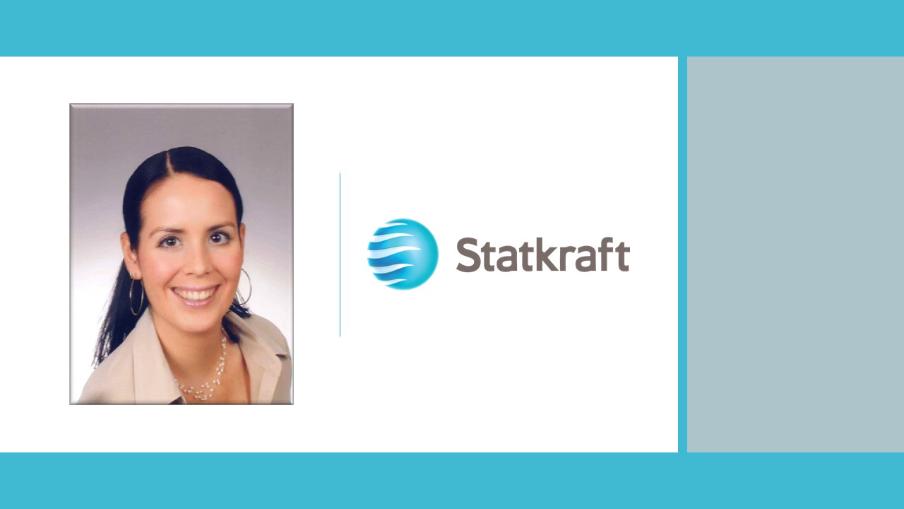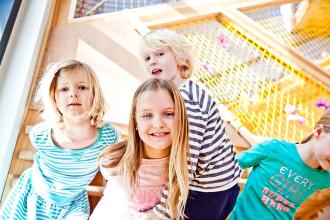
In this interview, Heike Maetz, HR Business Partner at Statkraft, reports on the changes she has observed in her organization in recent months, what will be important in the future in terms of cooperation and what she would like to see after corona. As Europe's largest producer of renewable energy, Statkraft employs 4,600 people in 18 countries. Around 480 employees work in the offices and power plants in Germany.
We are in a phase of openness and extreme change in the world of work. How has your team changed in recent months? What have you observed?
Heike Maetz: Statkraft adapted very quickly to the changed conditions and acted in a very employee-oriented manner. This is also reflected in the results of the latest internal employee surveys. Employees continue to be very satisfied overall, they have the tools and resources they need to do their work, and internal corporate communication is also rated positively. At the same time, there are areas that require special attention, such as the sense of togetherness and community among colleagues. These are key aspects of our corporate culture that need to be promoted in a special way in the current situation.
In terms of health and work-life balance, we have noticed that some employees have noticed a positive effect from the increased home office situation, while others have noticed a certain emotional, physical or mental exhaustion, e.g. due to the reduced boundaries between their private and professional lives. The health of our employees is very important to us, which is why we have taken various initiatives during the pandemic to promote the physical and mental health of our employees. For example, as an organization we have offered various webinars on the topic, including in cooperation with the pme Familienservice, sent a "Health & Wellbeing" package to our employees and organized virtual get-togethers such as the Christmas Dinner Wine & Dine. This was and is very much appreciated by our employees, and we hope that it will continue.
What does your team need to be well positioned for the post-corona period?
Heike Maetz: The first question is whether and when there will be a clear post-corona period. It is quite likely that the situation will remain dynamic for some time to come and we will have to look at how we can best shape this. The topic of "new ways of working" is of course at the center of this, and we are in the process of designing and implementing new guidelines for hybrid forms of work. What do our employees need to feel comfortable at work? What is the right mix of physical and virtual meetings? How often should employees be present in the office? The future design of our office space also plays an important role here, including different types of workspaces for teamwork, sharing and concentrated work.
Many employees point out the advantages of flexibility and would like to adapt to more hybrid working in the future. Others are concerned that increasing flexibility will reduce the frequency and quality of professional and interpersonal exchanges at Statkraft locations. It is therefore important to enable flexibility in the right balance with stability and connectedness. With a strong bond, solid trust, value-creating experiences and clearly defined goals as a foundation, employees can then be let go within a certain framework. It is important to create a kind of "glue", which will also have an impact on the management task.
What measures or methods have helped you to recognize what your team will need for collaboration in the future?
Heike Maetz: In addition to our annual employee survey, we have conducted several "Pulse Surveys" in recent months to better understand how our employees are doing, what their needs are and what ideas or suggestions they have. The aim in each case has been to gain insights into key issues relating to work and well-being, including questions about the future of work. In addition, direct exchange plays a key role, within individual teams, between employees and managers, in management meetings, with HR and the management. It is important to have a trusting exchange and, of course, to weigh up what is practicable, feasible and beneficial. We have also set up a task force for "new ways of working" and are basing our planning for further measures on the lessons learned in recent months.
What challenges do managers face in the current climate?
Heike Maetz: We are pleased that the majority of our employees are positive about the support they have received - and continue to receive - from their line manager during the pandemic. At the same time, there are many challenges. In particular, the virtual induction of new employees is not always easy and requires more direct attention.
In addition, it can sometimes be more difficult for managers to assess how their employees are really doing and what situation they are in at certain times. In this context, the relationship level and individual and situational leadership become more important. In addition, the question arises as to how managers can best deal with the fact that job satisfaction has decreased for some employees working from home and increased for others. How can they positively promote the need for belonging, social relationships and personal networking, while other employees may need less social contact or feel distracted by colleagues at work?
In this context, empathy, motivational skills and communication are becoming even more important. Beyond the social component, managers are of course still responsible for the productivity of their department and the achievement of goals. In the context of remote leadership, aspects such as task-oriented leadership and an empowering leadership style are playing an increasingly important role. For HR, the logical question is how we can support our managers even better in this task, for example through leadership boot camps, which we have already held in recent months.
What are your 3 wishes for cooperation after Corona?
Heike Maetz: Our corporate culture is characterized by trust, collaboration and a good team spirit. Our presence in the office will continue to be the most important arena for social contacts and networking. We want to maintain and further promote this. In line with our mission statement "Powered by Care", it is also very important to us that our employees are physically and mentally well. The coronavirus pandemic has brought the issue of mental health in particular even more to the fore, which can also be an opportunity for the future. And last but not least, we hope that we continue to have a high level of employee engagement and that our employees feel positively committed to our company.
Heike Maetz, HR Business Partner at Statkraft Markets GmbH, responsible among other things for the Employee Assistance Program, Systemic Personal & Business Coach
You might also be interested in
Team development: "Good people leave sluggish teams"
Big air in the office: How to resolve conflicts in the team
Five tips on how to lead a hybrid team
About Statkraft
Statkraft is an international leader in hydropower and Europe's largest producer of renewable energy. The Group generates electricity from water, wind, sun and gas, supplies district heating and is a major global player in energy trading. Statkraft employs 4,600 people in 18 countries. Since 2019, Statkraft has been using the work-life balance services of pme Familienservice to support its employees.
pme Familienservice Group - Your Work:Life pioneer since 1991
On behalf of more than 1400 employers, the pme Familienservice Group supports employees in achieving a successful work-life balance and being able to work with a clear head.
The pme Familienservice Group supports working people in crises, e.g. conflicts at work, addiction or partnership problems. With a homecare eldercare service, it helps working people to organize and finance care services and offers psychosocial support. The pme Academy offers seminars, workshops and coaching on the topics of personnel management and development.
You can find out more about the pme Familienservice Group here.




